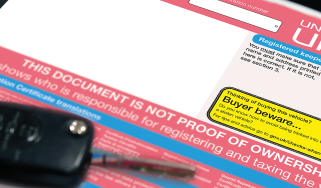Make a claim
Motorists are getting better at winning pay-outs for cars damaged by Britain’s broken-down roads
According to the AA Motoring Trust, claims have shot up by nearly 60 per cent in the past decade, costing local authorities £473million in compensation in England alone. Its spokesman said: “The increase is partly due to the current ‘compensation culture’, but also the fact that people are more savvy about what they are entitled to.”
Those people include Auto Express reader Nigel Burnham. He complained to his local authority after steering his car through wet tar. “I had driven past contractors laying a new road, and the car suddenly felt like it was running on flat tyres,” he told Helpline. “When I got out to check what was wrong, I realised that the tread was completely filled with black gunge. The tyres looked like Liquorice Allsorts! I had to buy two new replacements before continuing my journey.”
Nigel took photographs, and sent both them and the £70 repair bill to the council. He is still waiting for its decision, but our guidelines opposite show exactly what steps motorists should take in his situation – and what to do if the claim is rejected.
Setting out your claim
If you’ve decided to seek compensation from your local authority for damage to your car, here’s a checklist of key points you need to remember when gathering evidence, tackling the council and, if necessary, going to an English court.
Gathering evidence● Take pictures and careful measurements of the holes or obstruction in the road, in case the problem has been repaired by the time your case is dealt with. Also, get shots of the damage to your car.● Make a note of the time, date, lighting situation and weather conditions when the incident took place.● Make sure you get a witness – if you don’t have a passenger to call on, a passer-by will do – as it may pay to have a second opinion.● If necessary, call out a breakdown firm, who can later confirm the damage to your vehicle.
Tackling the council● Call the council to get a claim form.● Send back this form, plus your photographs and estimates of repair costs, by registered post.● The council is duty-bound to reply to you within 30 days.● If you haven’t heard back, write again stating you’re about to take the matter to court. The council then has three months to inform you whether it intends to settle the claim.
Going to court● If the claim is for less than £5,000, excluding personal injury, take it to the small claims division of the County Court. You will be given a hearing date, but do not need to engage a solicitor.● Keep a record of expenses, as you are entitled to include these in your claim. The courts are keen on protecting public funds, however, so remember to keep your request as reasonable as possible.● Attend the court and present your evidence to the district judge.● Visit the Department of Constitutional Affairs’ website, which you can find at www.dca.gov.uk, for more details.
Find a car with the experts







